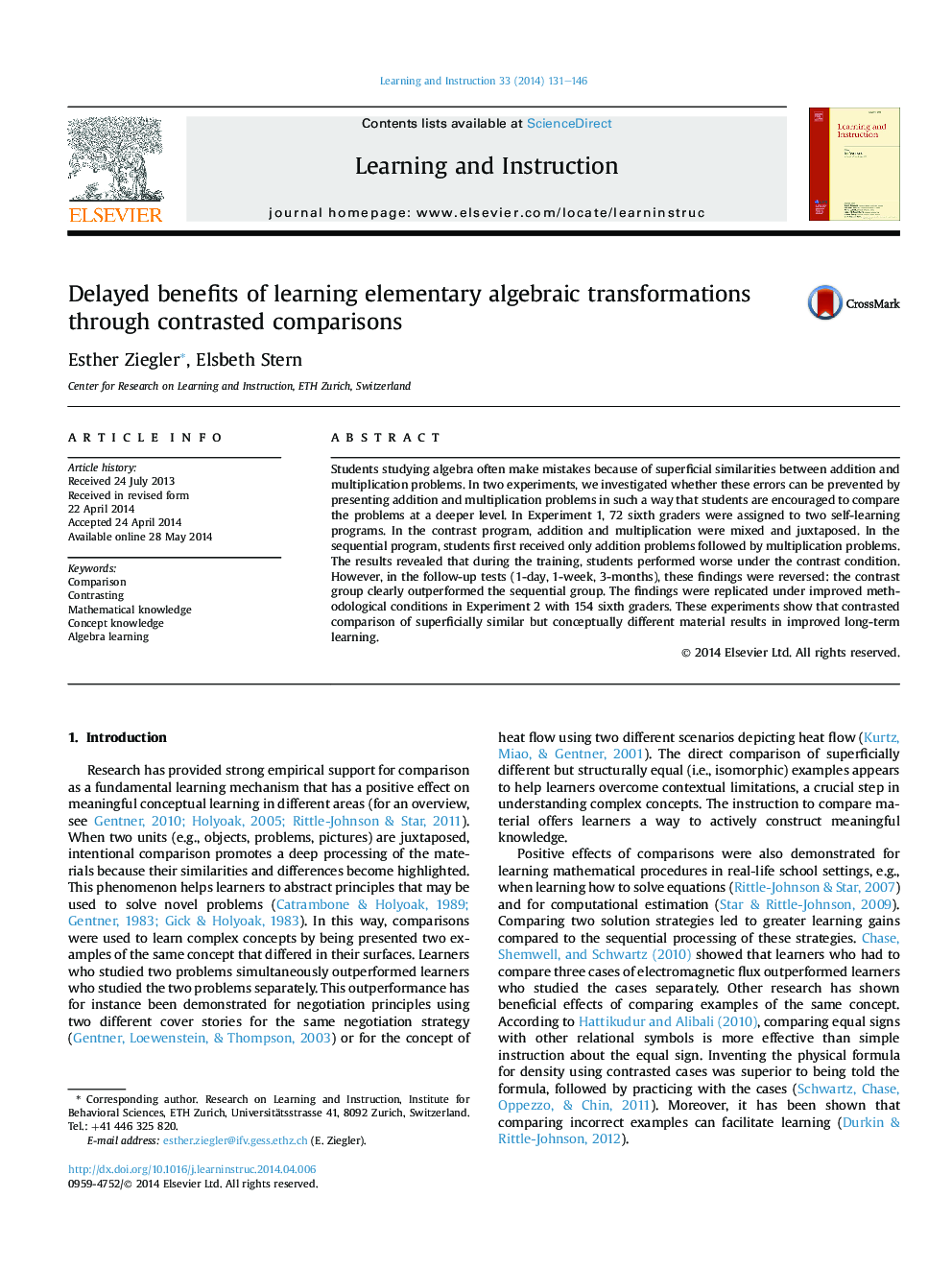| Article ID | Journal | Published Year | Pages | File Type |
|---|---|---|---|---|
| 365566 | Learning and Instruction | 2014 | 16 Pages |
•A challenge in algebra learning is the frequent confusion of similar concepts.•Contrasting helps to differentiate between similar concepts in the long term.•Contrasting is effective although it is more demanding than sequenced learning.•It is important to guide students for a deep processing of materials.
Students studying algebra often make mistakes because of superficial similarities between addition and multiplication problems. In two experiments, we investigated whether these errors can be prevented by presenting addition and multiplication problems in such a way that students are encouraged to compare the problems at a deeper level. In Experiment 1, 72 sixth graders were assigned to two self-learning programs. In the contrast program, addition and multiplication were mixed and juxtaposed. In the sequential program, students first received only addition problems followed by multiplication problems. The results revealed that during the training, students performed worse under the contrast condition. However, in the follow-up tests (1-day, 1-week, 3-months), these findings were reversed: the contrast group clearly outperformed the sequential group. The findings were replicated under improved methodological conditions in Experiment 2 with 154 sixth graders. These experiments show that contrasted comparison of superficially similar but conceptually different material results in improved long-term learning.
